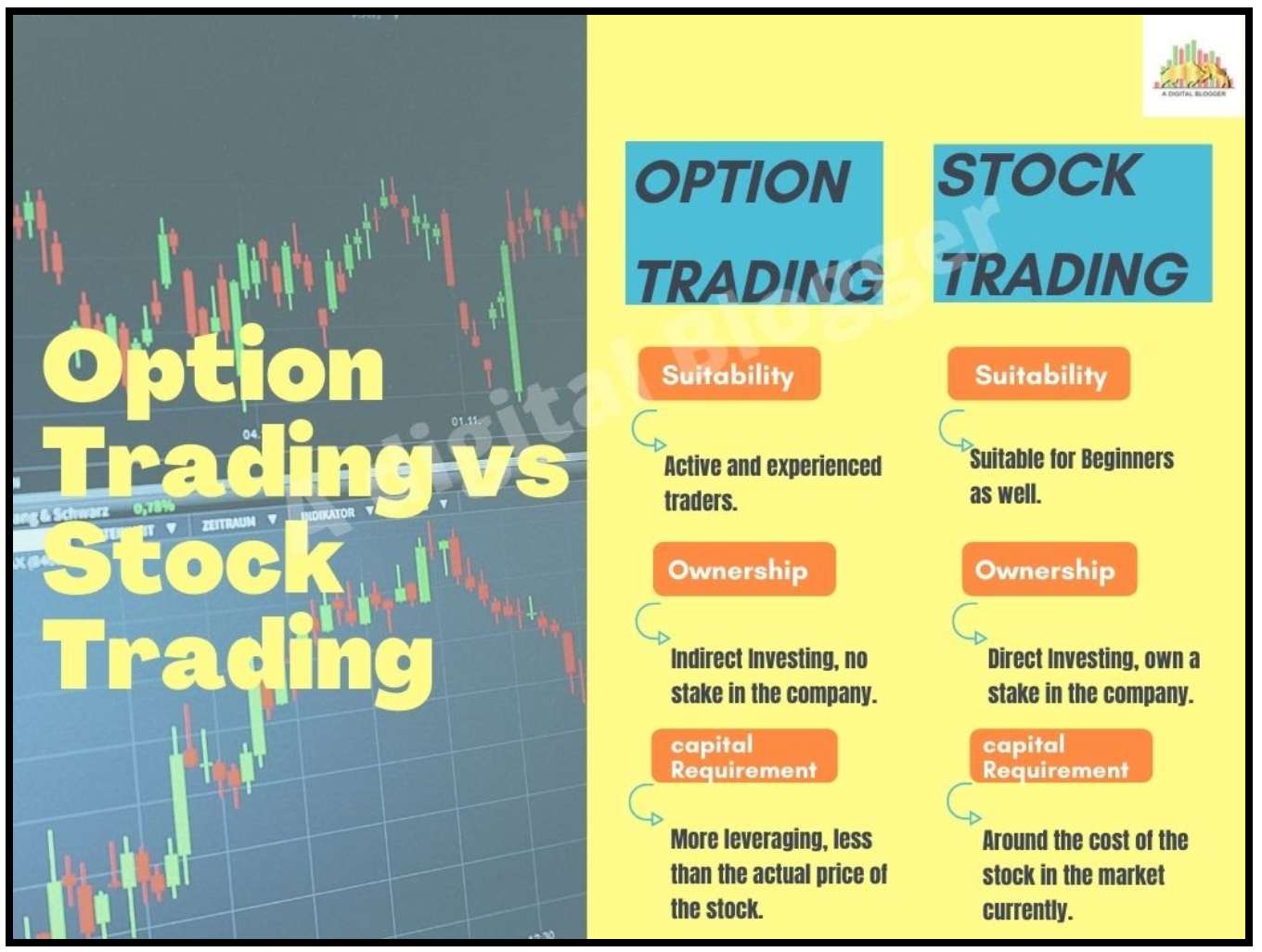As a fledgling investor, I was torn between navigating the stock market and ventures into option trading. Each option had its attractions, but understanding the intricacies proved crucial.

Image: www.rockwelltrading.com
Stumbling upon a veteran trader’s wisdom, I was illuminated on the contrasting characteristics of stock and option trading. Stocks represent ownership in a company, while options provide a contractual right to buy or sell an underlying asset. Unraveling these distinctions empowers investors to embrace informed decisions.
Understanding Stock Trading: Ownership and Direct Involvement
Stock trading involves buying and selling shares of ownership in publicly traded companies. As a stockholder, one owns a fractional piece of the company, entitling them to potential dividends and voting rights. Stock trading offers direct participation in the company’s performance, with profits or losses tied to the stock’s price fluctuations.
Advantages of Stock Trading
- Ownership and Dividends: Stocks represent ownership in a company, providing investors with a share of its profits through dividends.
- Potential Capital Gains: When a stock’s value rises, investors realize capital gains upon selling, offering potential for financial growth.
- Voting Rights: Stockholders have the right to vote on company decisions, influencing the company’s direction.
Exploring Option Trading: Leveraging Contracts
Option trading encompasses contracts granting the holder the right, but not the obligation, to buy (call option) or sell (put option) an underlying asset at a predetermined price (strike price) on or before a specific date (expiration date). Option premiums fluctuate based on market conditions and the underlying asset’s volatility.

Image: www.adigitalblogger.com
Benefits of Option Trading
- Leverage and Limited Risk: Options provide greater leverage compared to stocks, allowing for potentially substantial returns with limited upfront investment. However, this leverage also entails higher risk.
- Income Generation: Options can be used to generate income through premium selling or structured option strategies.
- Hedging and Speculation: Options offer flexibility for hedging against risk or speculating on underlying asset price movements.
Recent Trends and Developments
Both stock and option trading have witnessed significant advancements in recent times. Technological advancements have facilitated online trading platforms, empowering retail investors with greater access and real-time market information.
The rise of mobile investing has further simplified the trading process, enabling investors to trade on the go. Moreover, the burgeoning cryptocurrency market has introduced novel trading opportunities and asset classes for both stock and option traders.
Tips and Expert Advice for Navigating Stock and Option Trading
Seasoned traders recommend starting with a comprehensive understanding of financial markets and trading fundamentals. Thorough research and due diligence are paramount for evaluating potential investments.
Proper risk management is crucial, particularly in option trading where leverage amplifies both potential gains and losses. Diversifying investments and implementing stop-loss orders can help mitigate risk.
FAQs
Q: Which is more beginner-friendly: stock or option trading?
A: Stock trading is generally considered more suitable for beginners due to its simplicity and direct ownership benefits.
Q: What is the key difference between a call and a put option?
A: A call option gives the holder the right to buy an asset at a specified price, while a put option provides the right to sell an asset at a specified price.
Q: Can I lose more money than I invest in option trading?
A: Yes, due to the leveraged nature of option trading, losses can exceed the initial investment.
Stock Trading Vs Option Trading

Image: stockoc.blogspot.com
Conclusion
Stock trading and option trading present distinct opportunities for investors, each with its own advantages and risks. Understanding the fundamental differences between these approaches, embracing sound trading practices, and seeking expert guidance when needed, investors can navigate the financial markets with informed decisions.
Are you intrigued by the world of stock or option trading? Dive deeper into these compelling trading strategies and embark on your financial journey!






